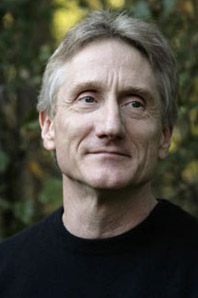Religion, climate crisis
Why are religious communities so slow in responding to the climate crisis?
Earth is facing the biggest climate crisis in human history, and environmental activists everywhere are striving to protect both humans and other organisms on earth with which they often feel a kinship. Meanwhile, the world religions are not effectively mobilizing in response. Interview with Professor of religion and nature/environmental ethics, Bron Taylor, who will visit SDU on 22 March 2023.
Biodiversity is declining; we are losing between 200 and 2000 species every year, and at the same time, climate changes threaten the lives of humans and animals all over the earth. There is every reason to do something to stop this course, and many local, national and international movements try to do just that.
According to climate professor and head of SDU Climate Cluster, Sebastian Mernild, it is important to approach the climate crisis from other angles than the purely scientific one, and therefore he is looking forward to getting a perspective from a researcher of religion.
- The solution to the climate crisis must also be found in the social and cultural sciences. The climate crisis was created by us humans, so our behaviour, attitudes and actions must also be part of the solution, he says.
Are the world religions helping?
- Generally speaking, no, because for a number of reasons, environmental concerns are not a priority for them, reflects Bron Taylor, who is a professor at the University of Florida in the USA. On 22 March, he will visit SDU to give a guest lecture on religion, spirituality and the climate crisis.
Billions of supporters and no climate agenda
The two monotheistic religions alone, Christianity and Islam, have more than 4 billion adherents, so the role of religions is not without importance in society.
The same can be said about their lack of action in society, says Bron Taylor:
- The world religions have not evolved to help people mobilise to respond effectively to environmental problems, including today’s climate crisis. This is understandable, if you think god, or some gods, control environmental systems, then it is difficult to believe that we are responsible for them. And quite obviously, if one is not trying to be part of a solution, one will not be.
Another reason for the indifference of many religious people to environmental concerns is that religious leaders are occupied with the congregations’ day to day business of administration and rituals like baptizing and weddings.
Do humans have the most right to Earth?
- The world religions were founded many thousands of years ago when, of course, we knew nothing about evolution and ecology - that all organisms share a common ancestor and are biologically connected in ecosystems. Our ancestors imagined that one or more gods had created everything and installed us as more valuable, as spiritually superior, to other life forms. This leads to the still a common view that humans have the most right to the Earth. This human-centered (or anthropocentric) perspective is another key reason that religious people tend to not engage in environmental activism, which in many ways is about all living beings having value, even when they are not obviously useful to our own species, Taylor said.
He sees such views as prevalent among all of the world’s predominant religions, even though they are expressed in different ways.
- In many places around the world, religious communities are losing their young people, and sometimes they blame environmentalists. This can increase conflicts between religious people and those who are focused on environmental issues. But if a religion is afraid of its young people leaving them, the religious leaders and congregations should ask themselves why and find a way to be part of society that reflects the concern for the climate and nature that we see in society today, he says.
Spiritual environmental activists
Conversely, he sees plenty of environmental engagement from people who do not profess any religion. Such people may not consider themselves religious, but after many conversations with environmental activists all over the world, Bron Taylor finds that they often use religious terms to express their environmental concerns, including when stressing human kinship with other living beings or speaking of earth as sacred. Also many tell him, that they feel deeply connected to nature and there, they find beauty, joy, healing, and peace.
- In contrast to the world religions, many of these large and small groups and movements have a conviction that all living beings have value and humans have no right to drive other species to extinction. This sort of perspective often drives their efforts to protect nature, he explains.
If you want to hear more about Bron Taylor's research into religion, spirituality and the climate crisis, you are welcome to our free lecture on 22 March 2023 at SDU.
Want to join Bron Taylor's guest lecture?
The guest lecture "Spirituality & the Climate Crisis: Assessing environmental behavior from the world's predominant religions to 'Dark Green Religion'" takes place on 22 March at SDU at 11:15 – 12:15. Access is free and registration is not necessary. Organizers are the SDU Climate Cluster, the Danish Institute for Advanced Study, the Environmental Humanities Network at SDU, Religious Studies at the Department of Language, Culture History and Communication and Department of Business and Management.
Bron Taylor

Bron Taylor is a professor of religion, nature and environmental ethics at the University of Florida. He is the author of, among other things, "Dark Green Religion: Nature Spirituality and the Planetary Future", "Avatar and Nature Spirituality" and "Ecological Resistance Movements".
The world religions
The five biggest religions are Hinduism, Buddhism, Judaism, Christianity, and Islam. Together they have roughly 6 billion adherents.